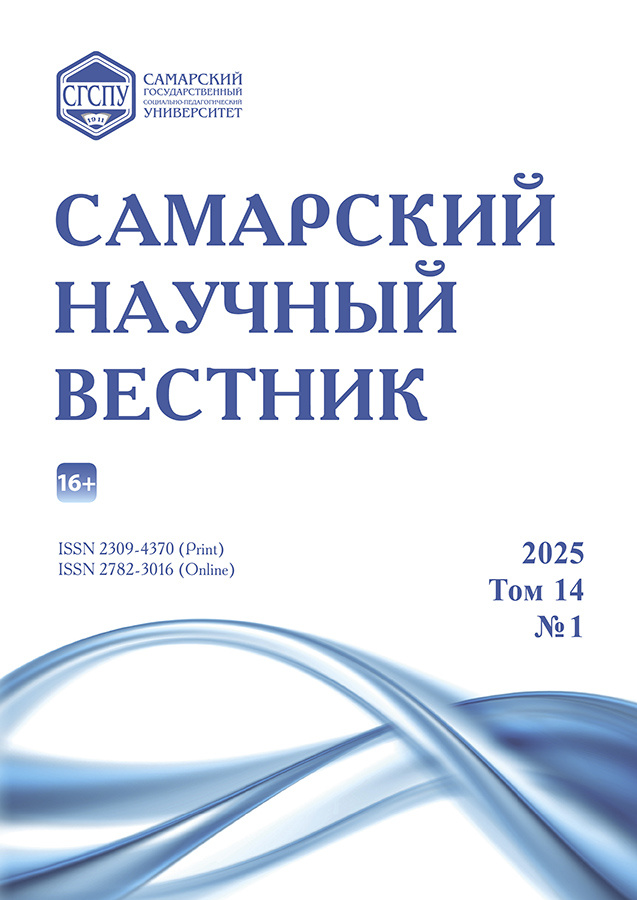Educational potential of the discipline «Lean manufacturing»
- Authors: Maliashova A.Y.1, Gadelshina S.V.1
-
Affiliations:
- Kazan National Research Technological University
- Issue: Vol 14, No 1 (2025)
- Pages: 162-165
- Section: Pedagogical Sciences
- URL: https://journal-vniispk.ru/2309-4370/article/view/313687
- DOI: https://doi.org/10.55355/snv2025141309
- ID: 313687
Cite item
Full Text
Abstract
This article examines the implementation of the educational potential of the Lean Manufacturing discipline taught at the Department of Innovation in Chemical Engineering of the Kazan National Research Technological University. The course is aimed at first-year master's students studying in the field 18.04.01 – Chemical Technology. The authors present the concept of teaching, goals and objectives to be solved as part of the study of the discipline. The educational function, which is aimed at forming the professional orientation of the student, is considered. One aspect of teaching is related to the implementation of the educational potential of the discipline. It is indicated that when developing a discipline program considering its educational potential, teachers are guided by a number of principles, each of which is considered in detail. Particular attention is paid to the competencies that students develop in the process of studying the discipline Lean Manufacturing, such as critical thinking, the ability to work in a team, analytical thinking, and the formation of an attitude towards the chosen profession. The article emphasizes the importance of integrating theoretical knowledge with practical skills. This is achieved through the participation of students in the Lean Flow and Lean Office simulation laboratories. The laboratories fully recreate the production and office processes of the enterprise, allowing students to solve real production problems. At the same time, students develop a responsible attitude towards work and social responsibility. Studying the discipline Lean Manufacturing allows you to prepare competitive specialists with leadership qualities that are relevant in the production field and capable of making clear decisions.
Full Text
##article.viewOnOriginalSite##About the authors
Anna Yurievna Maliashova
Kazan National Research Technological University
Author for correspondence.
Email: annamalyashova@gmail.com
senior lecturer of Innovation in Chemical Technology Department
Russian Federation, KazanSvetlana Vladimirovna Gadelshina
Kazan National Research Technological University
Email: svetlanaguzhova@yandex.ru
candidate of technical sciences, associate professor of Innovation in Chemical Technology Department
Russian Federation, KazanReferences
- Хаертдинова А.А., Маляшова А.Ю., Гадельшина С.В. Изучение дисциплины «Бережливое производство» как условие подготовки специалистов для промышленного сектора экономики // Самарский научный вестник. 2023. Т. 12, № 3. С. 326–330. doi: 10.55355/snv2023123318.
- Осипов П.Н., Дулалаева Л.П. Развитие soft skills студентов технического вуза во внеаудиторной деятельности // Управление устойчивым развитием. 2020. № 6 (31). С. 95–102.
- Об образовании в Российской Федерации: федеральный закон от 29.12.2012 № 273-ФЗ [Электронный ресурс] // Гарант.ру. https://base.garant.ru/70291362.
- Осипов П.Н. Учить учиться // Управление устойчивым развитием. 2023. № 6 (49). С. 73–77.
- Осипов П.Н., Осипова Л.Н. Ценностные ориентации студентов // Право и образование. 2017. № 6. С. 45–52.
- Султанова Д.Ш., Маляшова А.Ю. Развитие направления 27.03.05 «Инноватика» в Казанском национальном исследовательском технологическом университете // Инновации. 2019. № 12 (254). С. 47–50. doi: 10.26310/2071-3010.2020.254.12.006.
- Маляшова А.Ю., Гадельшина С.В., Хаертдинова А.А. Переподготовка сотрудников промышленных предприятий как основа внедрения бережливых технологий // Экономика и предпринимательство. 2023. № 8 (157). С. 1198–1201. doi: 10.34925/eip.2023.157.8.226.
- Зиятдинова Ю.Н. Гуманитарные дисциплины в инженерной магистратуре: проектные методы и цифровые технологии // Бизнес. Образование. Право. 2023. № 3 (64). С. 404–407. doi: 10.25683/volbi.2023.64.710.
- Maliashova A., Sultanova D., Sanger P.A. Characteristics of team dynamics influencing success in engineering student teams // Lecture Notes in Networks and Systems. 2022. Vol. 389. P. 13–20. doi: 10.1007/978-3-030-93904-5_2.
- Хаертдинова А.А., Гадельшина С.В. Анкетирование, как способ изучения начальной подготовки магистрантов для повышения качества учебного процесса // Вестник педагогических наук. 2023. № 6. С. 100–107.
- Маляшова А.Ю., Гадельшина С.В. Проектные методы обучения как фактор развития готовности студентов к проектной деятельности // Педагогика и психология образования. 2024. № 4. С. 90–101. doi: 10.31862/2500-297x-2024-4-90-101.
- Осипов П.Н. Инновации в образовании: мнения преподавателя и его студентов // Инновации и качество профессионального образования: мат-лы 15-й междунар. науч.-практ. конф. (Казань, 21 мая 2021 г.). Казань: Редакционно-издательский центр «Школа», 2021. С. 29–33.
- Осипов П.Н. Воспитательная деятельность в инновационном вузе: учеб. пособие. Казань: Бронто, 2019. 264 с.
- Ковалева А.И. Динамика воспитательной функции высшей школы в России // Знание. Понимание. Умение. 2021. № 4. С. 33–47. doi: 10.17805/zpu.2021.4.3.
- Маляшова А.Ю. Воспитательный потенциал дисциплины «Основы проектной деятельности» // Синергия – 2022: мат-лы VII междунар. сетевой науч.-практ. конф. (Нижнекамск, 13–14 октября 2022 г.) / под ред. Д.Ш. Султановой. Казань: Казанский национальный исследовательский технологический ун-т, 2022. С. 146–151.
Supplementary files






